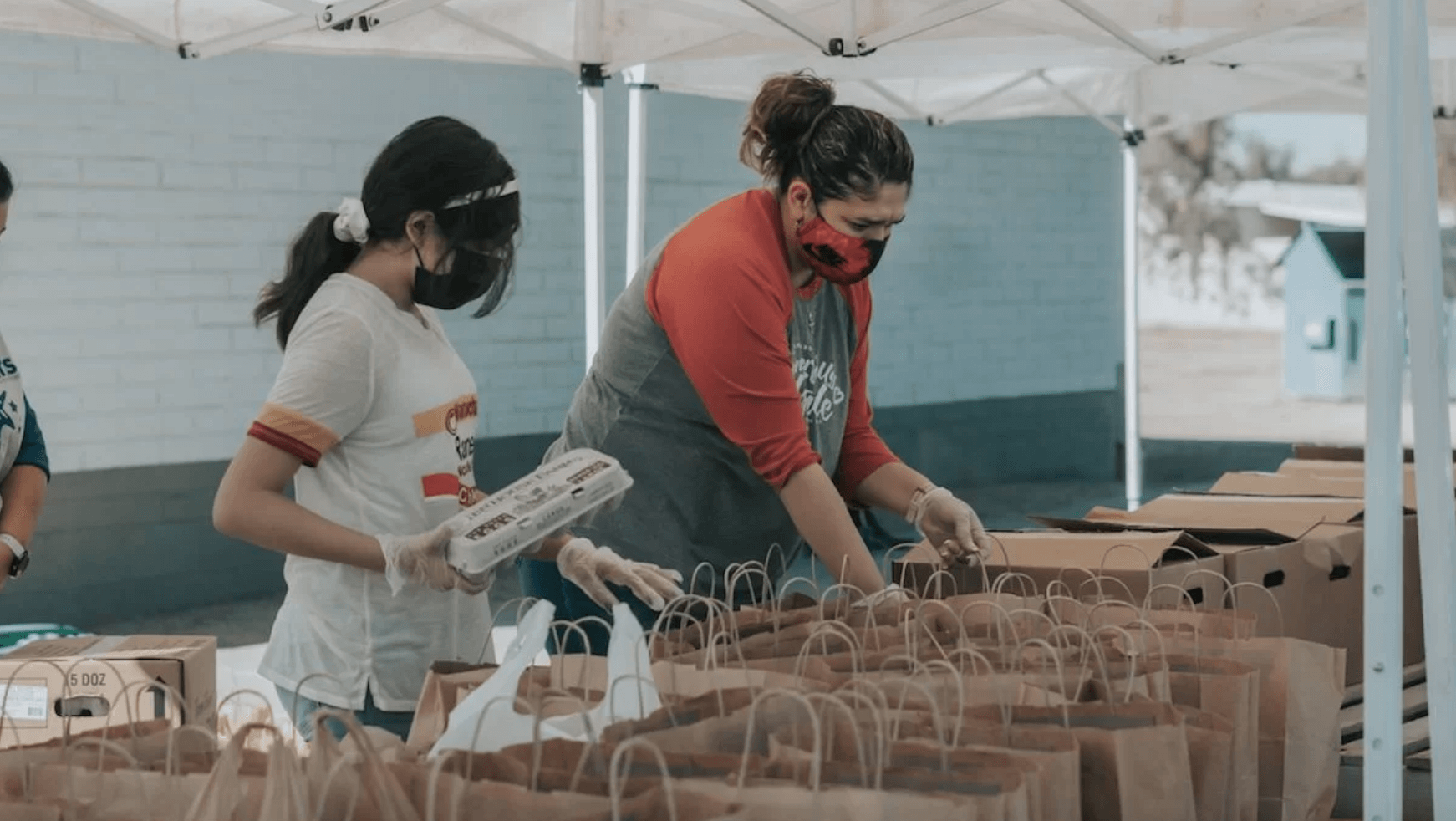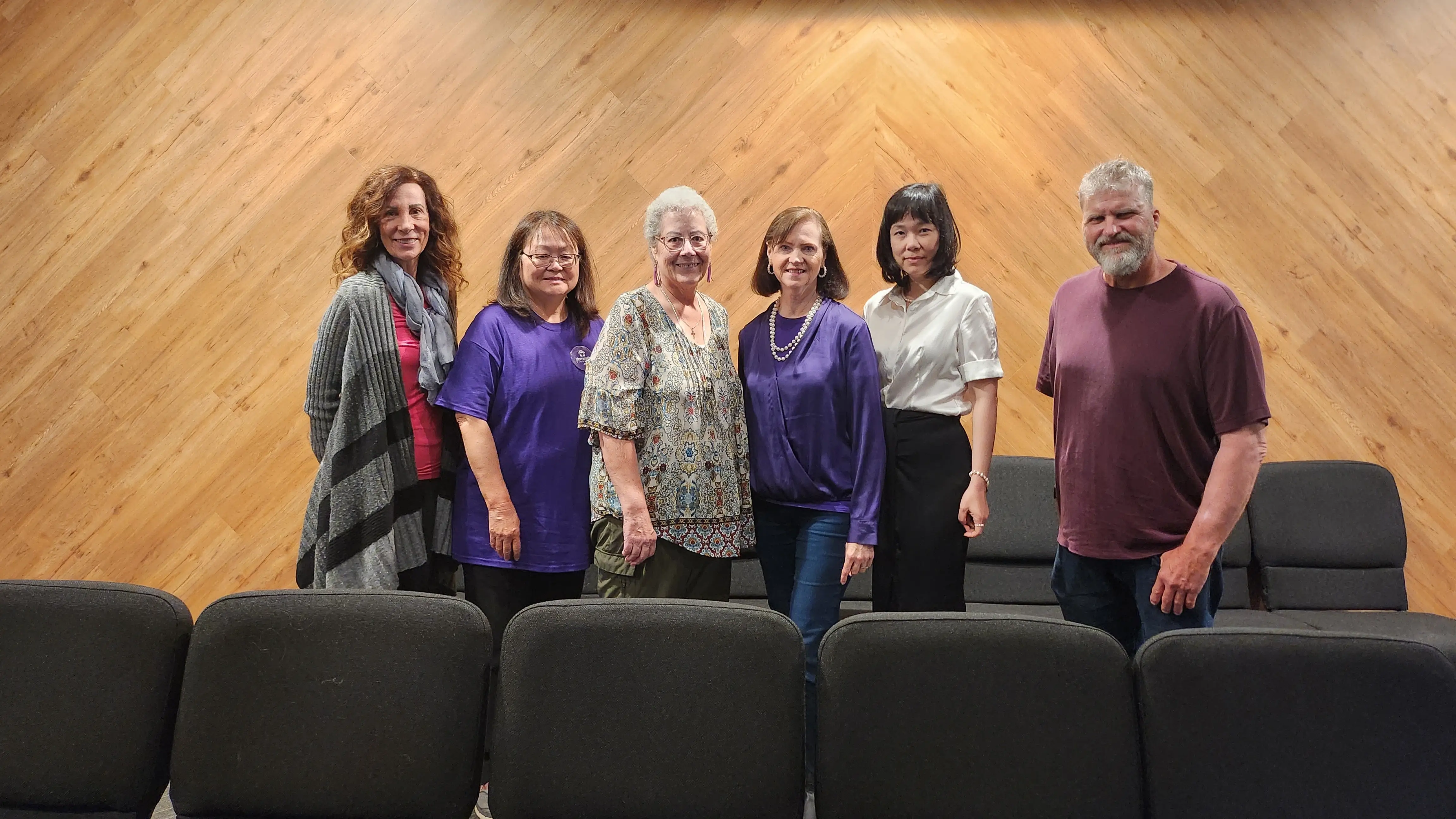
Photo by Christian Stahl for Unsplash
Towards the end of July, every inch of the sidewalk outside the iconic Roosevelt Hotel in New York City was filled with migrants seeking shelter and answers. Despite the historic hotel having over 1,000 rooms so many were left in the city heat sleeping on the sidewalk with only cardboard boxes and thin blankets to shield them, according to the New York Post. Many were unable to sleep at all, fearful of the dangers that come with such exposure.
With such devastating and heart-wrenching displays, it is easy to sympathize with the migrants and asylum seekers entering our country. But what exactly are we, as Christians, doing to welcome them? Can we be doing more?
Every Christian knows the command “love thy neighbor” just as much as they can recite John 3:16 But what about loving the stranger? Deuteronomy 10:19 says, “Therefore love the stranger, for you were strangers in the land of Egypt.”
Throughout the Bible, we are consistently reminded to help those foreign to us as well as those vulnerable and in need. Leviticus 19:34 refers to the foreigner as someone you must “love as yourself” as well as “treat as your native-born.” This is not just a call to aid the foreigner in need, but treat them as your equal, as though they were raised among you.
Further, Psalm 146:9 says, “The LORD watches over the sojourners; he upholds the widow and the fatherless.”
However, even with these countless reminders built throughout the Bible, this command can often drown in the sea of worldly desires and discomfort.
The command to “love thy neighbor” — though challenging when your neighbor blasts music until late at night or lets their dog poop in your yard — is still much more in the realm of our comfort zones.
Our old neighbor has lived beside us for a long time. They speak the same language. They understand the same culture.
But what about our new neighbors? What about the ones having to start over in this place where they don’t speak the same language or understand the culture?
While we may still have the option to stay in the bubble of our comfort zone, they do not. Their comfort zones are scattered across the world. So how do we help?
When Christ, in Matthew 25:35 says, “For I was hungry and you gave me something to eat, I was thirsty and you gave me something to drink, I was a stranger and you invited me in,” He is calling Christians to not only aid people’s basic needs, but also welcome as He welcomes.

Photo by Elaine Casap for Unsplash
Many churches across New York City have answered this call by providing housing, food and drink. One church is Evangel Christian Center in Long Island City in Queens county, New York. But they don’t stop at providing physical needs, because more is needed than just a bed and a meal.
The church also provides showers and halal food, according to The New York Times. Not only are they inviting their neighbor in and giving them food to eat, but they are respecting their beliefs and customs by providing familiar, safe foods.
Evangel Christian Center evangelizes to its new neighbor not by dismissing their customs, but by displaying God’s love through actions.
The best way to express the gospel to others is to live it out in one’s own life, according to the Yellow Balloons Podcast. Using our actions is much more effective than being preached at or argued with.
By acknowledging our new neighbor’s spiritual and emotional needs — not just physical ones — we can evangelize in a much more effective and caring way.
Alongside Evangel Christian Center, over 50 houses of worship now shelter immigrants across New York City, according to the New York Post. But what happens when we do not have the space to house them?
New York native Zoe Whitford teamed up with a few other New York City residents to search for a way.

Photo by Ismael Paramo for Unsplash
Whitford recalls the situation at Roosevelt as crowded and overwhelming.
“I heard the chanting first rounding the corner of the street,” Whitford wrote in an email to Koinesúnē Magazine. “They were swarming around the block.”
Whitford remembers swells of activity. Passersby attempted to dissuade photographers and reporters as they crowded around the sidewalk. Others led a protest, tearing up American flags and posing for pictures. So much was being done, but not much was actually helpful — only escalating the stress of the situation.
“It just felt like everyone wanted something out of them,” Whitford wrote.
What Whitford remembers most however, was how in addition to the commotion and swarming, migrants were being bombarded as “props” rather than being cared for.
All of the news outlets were looking for a face to the story, but maybe these migrants just wanted a breath of peace. Protestors were chanting for a cause but not caring for the migrants’ immediate needs, according to Whitford.
“Everyone was so interested in talking about their needs but not actually meeting them,” Whitford wrote. “The intellectual vs. actualized change gap felt very real there. Everyone wanted to talk and no one wanted to do anything substantial.”
At this moment, there was a complete lack of awareness. The crowd was a sea of unfruitful actions, but Whitford knew what to do: “I just asked them what they needed.”
She went to work searching for ways to fulfill these needs.
“I crowd sourced money on Instagram to buy blankets from Target and put out a blast on my Brooklyn ‘Buy Nothing Group’ for any clean bedding people had,” Whitford said.
With blankets in tow, she and a few others marched to Roosevelt Hotel to provide help, only to find that many migrants were moved to tent facilities in Randall's Island , New York to scatter the overwhelming crowd.
With winter peeking around the corner from fall, Whitford knows these blankets are essential to keep those in these temporary shelters warm. She stores the blankets in her boyfriend’s apartment now, waiting for the go-ahead.
In the meantime, Whitford waits eagerly to serve where she is needed. As the situation escalates and migrants are moved throughout different shelters, Christians need to exercise patience through waiting — and listening.
This strange new territory of uncertain shelters and serving opportunities can be challenging to operate, but Christians should stay open and ready to find their chance to serve.
In the sea of reporters demanding interviews, it is key to be the neighbor that listens to the new neighbors’ needs and acts on them with grace, dignity and love.
There is no one answer on how to help migrants. Every single person has their individual needs. But ultimately, the Bible reminds us in Hebrews 13:2, “Do not forget to show hospitality to strangers.”
So, find a way to show that hospitality and act on it.














